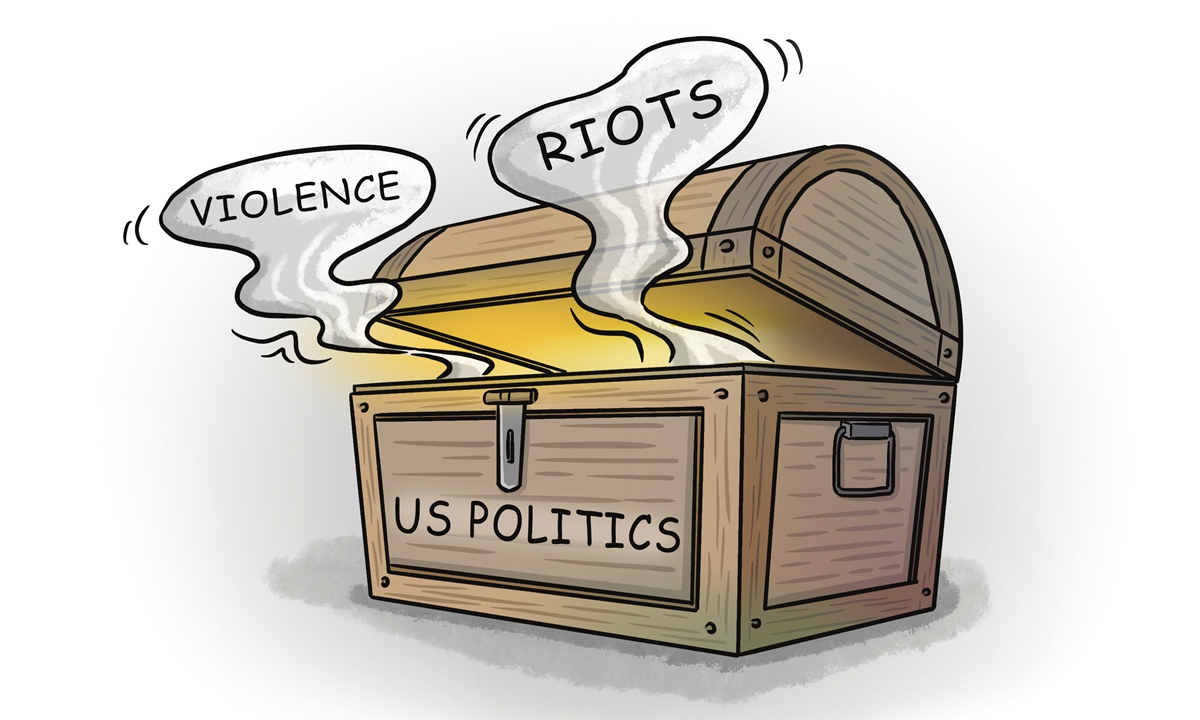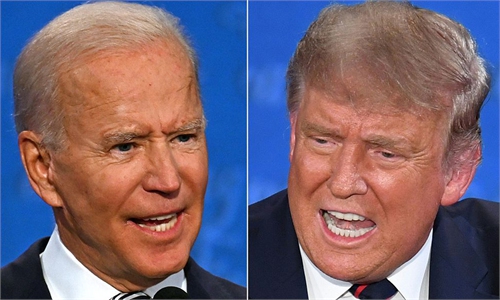
Illustration: Xia Qing/GT
The assassination of president John Fitzgerald Kennedy on November 22, 1963 unleashed an era of violence in American politics, which culminated five years later with the killing of his brother. Senator Robert Francis Kennedy was gunned down in a Los Angeles hotel in June 1968, having just won the California presidential primary.America is a land of "violent people with a violent history, and the instinct for violence has seeped into the bloodstream of our national life," historian Arthur M. Schlesinger Jr, a friend of both Kennedy brothers, said in the aftermath of RFK's assassination.
Two months before RFK was killed, black civil rights leader Reverend Martin Luther King had been killed as well. The race riots that followed, and the political riots at the Democratic National Convention in Chicago, seemed to bear out Schlesinger's assessment. Yet the backlash against the violence led to the election of Republican Richard Nixon on a "law and order" platform. Political violence gave way to lawfare and propaganda as preferred methods of vying for power, as Nixon soon found out to his detriment.
In 2016, when Hillary Clinton lost to Republican Donald Trump, all gloves were off. Masked "Antifa" activists rioted at Trump's inauguration. Democrats took to the streets outside the White House almost weekly, with celebrities openly talking about killing or violently overthrowing the president. A 2017 political dispute over a monument in Charlottesville, Virginia, led to a riot that was then pinned on Trump by Democrats and the media.
Then in late May of the same year, outright rioting and setting cities on fire became "fiery but mostly peaceful" - and a perfectly legitimate - form of politics. The Minneapolis Black Lives Matter riot over the death of a man named George Floyd spread to the rest of the US, and even as far as Europe. The White House came under siege. Activists besieged a federal courthouse in Portland and declared an "autonomous zone" in Seattle.
Just like in 2016, the riots calmed down shortly before the presidential election. Floyd's family and BLM endorsed Democrat Joe Biden, who ended up claiming the victory with the most votes ever in US history.
When thousands of Trump supporters converged on Washington to protest, they were met with no opposition. A February 2021 article in Time Magazine, about a "shadow campaign" that "fortified" the 2020 election, revealed why: those in charge of the "activist left" told it to stand down to "preserve safety and ensure they couldn't be blamed for any mayhem," according to its author, a reporter who was in contact with the "fortifiers" at the time.
The "mayhem" in question ended up being the January 6, 2021 riot at the US Capitol, when the joint session of Congress meeting to certify Biden's election was disrupted by Trump supporters. Suddenly, political violence - at least by Republicans - was unacceptable again. Thousands of rioters from the summer of 2020 never faced charges or received symbolic punishments. Meanwhile, hundreds of people who were inside the Capitol were handed draconian sentences for what the Democrats described as "insurrection" - a specific term used after the 1861-65 civil war to disenfranchise the defeated Confederates. Seeing thousands of National Guard troops patrolling the empty streets of Washington, DC to safeguard Biden's inauguration, it certainly seemed as if 2020 had been another civil war.
There has not been a major political riot in the US since then. The Republicans seem cowed by the January 6 prosecutions, while the Democrats have the power of the state and don't need the power of the street - at least not yet, anyway.
Once unleashed, however, the genie of violence is difficult to put back into the bottle. A poll by the University of Virginia in October showed that 41 percent of Democrats believe the Republicans to be so "extreme" that using force to stop them would be acceptable. Almost as many Trump-supporting Republicans, 38 percent, think the same about Democrats. As another presidential election approaches, the big question for 2024 seems to be not so much who will win at the ballot box, but whether Schlesinger was right.
The author is a Serbian-American journalist. opinion@globaltimes.com.cn

